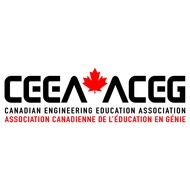
(View Complete Item Description)
These dynamics course notes were authored by Dr. Elizabeth Croft (currently at Monash University (elizabeth.croft@monash.edu) in 2004, and converted for open licensing (including figure creation) in 2019 by Dr. Agnes d'Entremont (adentremont@mech.ubc.ca) from the Department of Mechanical Engineering at the University of British Columbia, Vancouver, Canada (https://mech.ubc.ca).
The notes (are designed to be used for a second-year dynamics course in Mechanical Engineering, and cover planar rigid-body dynamics and an introduction to one degree-of-freedom vibrations. The order of topics has vibrations earlier in the series than typical, due to their use in an integrated course. This order matches the course timing of related ordinary differential equation solutions in the integrated mathematics and electric circuits courses.
These notes are intended to be skeleton notes, with substantial portions (diagrams, derivations, solutions) written in by students along with their instructor. Completed notes are included. PDF notes plus original LaTeX code and editable images (Powerpoint) are available at the link.
This work is licensed under a Creative Commons Attribution-ShareAlike 4.0 International License.
Material Type:
Full Course,
Lecture Notes
Authors:
Agnes d'Entremont,
Elizabeth Croft




















